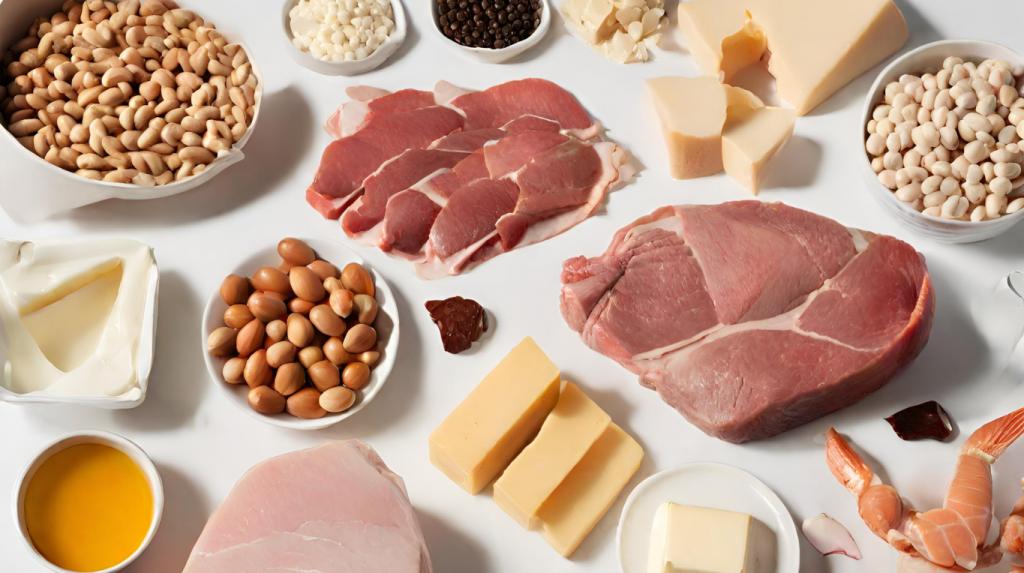L-carnitine is made in the body from the amino acids lysine and methionine together with Vitamins C, B3, B6 and iron. In infancy, and in situations of high energy needs, such as pregnancy and breast-feeding, the need for L-carnitine can exceed production by the body.
What it does
- Energy Enhancer: Carnitine is needed to release energy from fats which it transports into mitochondria, (the powerhouses of cells) where they are used as fuel.
- Heart Health: Heart cells have many mitochondria and uses fatty acids as a primary source of energy, it therefore requires high amounts of carnitine for normal function. e a crucial factor in the maintenance of heart health. Carnitine deficiency has been identified in a number of heart conditions, including angina, arrhythmia and cardiovascular disease.
- Lipid Lowering: Carnitine can reduce cholesterol and triglyceride levels, while improving the ratio between HDL (good) and LDL (bad) cholesterol.
- Male Infertility:
Carnitine is found in high concentrations in the epididymis of the testes, where sperm mature and acquire their motility. Carnitine supplementation may be of value in improving sperm count and motility in infertile men. - Liver Health: Carnitine is required for the metabolism and utilisation of fatty acids in the liver it may be particularly helpful in alcohol induced fatty liver and cirrhosis.
Potential Uses
| Atherosclerosis | Cholesterol | Angina |
| Heart health | Liver health | Fatigue |
| Male infertility | Endurance exercise |
Food sources of Carnitine: Beef, pork, milk, cod, chicken, ice cream, avocado, whole wheat bread, asparagus. People who have a limited intake ofthese foods tend to have lower L-carnitine intakes.
What does L-carnitine work for?
L-carnitine is a natural amino acid that helps the body convert fat into energy. It is also important for heart health, muscle function, and brain development.
L-carnitine is often taken as a supplement by people who want to lose weight, improve their athletic performance, or boost their energy levels.
What does L-carnitine do for weight loss?
L-carnitine can help with weight loss by increasing the body’s ability to burn fat. It also helps to reduce muscle fatigue and improve endurance, which can lead to longer and more intense workouts.
A study published in the journal Obesity found that people who took L-carnitine lost more body fat and had a greater decrease in waist circumference than those who took a placebo.
Is it good to take L-carnitine everyday?
L-carnitine is generally safe for most people to take daily. However, it is important to talk to your doctor before starting any new supplement, including L-carnitine.
What does L-carnitine do for females?
L-carnitine can have a number of benefits for females, including:
- Weight loss
- Improved athletic performance
- Increased energy levels
- Reduced muscle fatigue
- Improved fertility
- Reduced symptoms of premenstrual syndrome (PMS)
Does carnitine burn belly fat?
L-carnitine can help to burn belly fat by increasing the body’s ability to convert fat into energy. However, it is important to note that L-carnitine is not a magic bullet for weight loss. It is most effective when used in conjunction with a healthy diet and exercise routine.
What are Food Sources of L-Carnitine?


Carnitine is naturally found in a variety of food sources, both from animal and plant origins. Here are some notable food sources of carnitine:
- Red Meat: Particularly beef, lamb, and pork, are rich sources of carnitine. For example, a 3-ounce serving of cooked beef provides approximately 81 milligrams of carnitine.
- Poultry: Chicken and turkey also contain carnitine, though in slightly lower amounts compared to red meat. A 3-ounce serving of cooked chicken breast provides around 3-5 milligrams of carnitine.
- Fish: Some fish, such as cod, halibut, and salmon, are good sources of carnitine. For example, a 3-ounce serving of cooked salmon contains approximately 4-5 milligrams of carnitine.
- Dairy Products: Milk and dairy products like cheese and yogurt contain small amounts of carnitine. A cup of whole milk provides about 8 milligrams of carnitine.
- Avocado: This creamy fruit is a notable plant-based source of carnitine, with one whole avocado containing around 2 milligrams.
- Asparagus: Among vegetables, asparagus is relatively high in carnitine. A half-cup of cooked asparagus offers about 3-4 milligrams.
- Whole Wheat Bread: Some whole wheat bread varieties, particularly those made with whole wheat flour, can contain moderate amounts of carnitine.
- Tempeh: This fermented soybean product is one of the few plant-based protein sources that contains a significant amount of carnitine. A 3-ounce serving of tempeh provides roughly 8 milligrams.
It’s important to note that while animal-based foods tend to be richer sources of carnitine, plant-based options can still contribute to your overall intake. If you follow a vegetarian or vegan diet, incorporating a variety of these plant-based sources can help support your carnitine intake. Keep in mind that individual dietary preferences and restrictions may influence the availability of these sources in your diet.
Are there any negative effects of L-carnitine?
L-carnitine is generally safe for most people to take. However, it can cause some side effects, such as:
- Stomach upset
- Diarrhea
- Nausea
- Headache
- Insomnia
L-carnitine may also interact with certain medications, such as blood thinners and diabetes medications. It is important to talk to your doctor before taking L-carnitine, especially if you are taking any other medications.
When is the best time to take L-carnitine?
The best time to take L-carnitine depends on your goals. If you are taking L-carnitine for weight loss, it is best to take it before meals. This will help your body to burn fat during digestion.
If you are taking L-carnitine for athletic performance, it is best to take it 30-60 minutes before your workout. This will help to improve your endurance and reduce muscle fatigue.
Does L-carnitine affect women’s hormones?
There is no evidence that L-carnitine has any negative effects on women’s hormones. In fact, some studies have shown that L-carnitine can improve fertility and reduce the symptoms of PMS.
How long does it take for L-carnitine to work for fat loss?
It may take several weeks or even months to see results from taking L-carnitine for weight loss. This is because L-carnitine works by gradually increasing the body’s ability to burn fat.
To see the best results, it is important to take L-carnitine consistently and in conjunction with a healthy diet and exercise routine.
Cautions
Carnitine deficiency may arise from use of various drugs, including valproic acid, phenobarbitol, didanosine, zalcitabine, stavudine, and pivalic acid containing antibiotics.
Generally, there are no side effects or contra-indications from using carnitine.
At the time of writing there were no well known negative drug interactions with carnitine.
In conclusion, L-Carnitine is a versatile compound with potential benefits for both men and women, particularly in the realms of energy production and weight management. However, it’s important to maintain realistic expectations and consult with a healthcare professional to ensure safe and effective use in your individual health journey.





